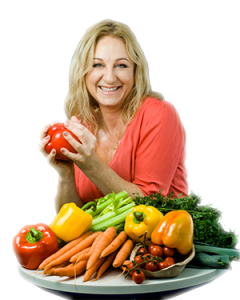So do probiotics really work?
Wondering if probiotics really work? Learn about their benefits, effectiveness, and how they can support gut health and overall wellness.
When I first qualified as a Nutritional Therapist over 9 years ago, I believed that probiotics were the panacea that we had all been waiting for. I had learned through my Diploma and hours and hours of being knee-deep in research that probiotics were a very effective nutraceutical therapy that could improve a wide range of disorders and conditions to alleviate symptoms from IBS to depression. All of this supported by scientific evidence however, fast forward 9 years where my clinical experience in addition to the latest scientific research shapes my recommendations for personalised advice to my clients, I now see things very differently.
Probiotic vs. Fermented Food
There are two ways to get more good bacteria into your gut: fermented foods and probiotic supplements. Fermented foods are a great way to get the naturally occurring bacteria that our gut enjoys being present.
The current theory about the mechanism of action of probiotics in the gut is their modulatory effect on other existing species of bacteria that are established habitants of our gut microbiome. Your gut microbiome is unique to you and was created at birth and maybe even from before birth based on your mother’s diet and genetic influence.
Fermented Foods as Probiotics
Fermenting is one of the oldest techniques for food preservation. Mankind has been fermenting foods and drinks like beer and wine for centuries. Foods that are fermented go through a process of lacto-fermentation in which natural bacteria feed on the sugar and starch in the food, creating lactic acid. It is precisely these lactic acid species that can influence the health and ecology of our gut by lowering the pH of the gut environment promoting the growth of beneficial species and preventing the overgrowth of fungal and yeast species such as candida albicans which don’t thrive in a more acidic gut.
The fermentation process not only preserves the food and promotes beneficial enzymes, B vitamins, and omega-3 fatty acids but these species are known to create healthy amounts of short chain fatty acids such as butyrate which directly feed our gut cells called colonocytes. Another way to look at fermentation is that it takes one type of food and transforms it into another; cabbage becomes sauerkraut or kimchi, cucumbers become pickles, soybeans turn into miso, and milk can be made into yogurt, cheeses and even a good ole’ British tea can be turned into a delicious fermented, fizzy drink called Kombucha.
The most common fermented foods that naturally contain probiotics, or have probiotics added to them, include: yogurt, kefir, kombucha, sauerkraut, pickles, miso, tempeh, kimchi, sourdough bread and some cheeses.

Yogurt and kefir are both so easy to add to your regular diet. Besides having it for breakfast with fruit or as a midday snack, you can substitute yogurt whenever you use mayonnaise in a coleslaw, egg salad or potato salad to make the most of their probiotic goodness. Sauerkraut and kimchi make a fabulous, tasty addition to spice up any salad, dinner or summer BBQ. Personally, I love having a good dollop of sauerkraut or kimchi on top of avocado and tuna salad or adding it to a wholegrain wrap or sandwich. Check out my recipes.
Early Probiotics
The term “probiotic” was first used in 1974 by Ilya Ilyich Metchnikoff, the Nobel Prize winner in Medicine in 1908 from Kharkow, Russia now part of Ukraine. He was the first to observe the effect of a fermented milk product “kefir” on the health of a long living communities in the Balkan states who were living to the age of 100 but came from very humble circumstances with simple diet and lifestyles. The commonality was that these humble people consumed daily doses of sour milk i.e., fermented milk rich in lactic acid producing bacteria.
“The prolongation of life may be preserved by eating yogurt” E. Metchnikoff, 1910.
The World Health Organisation redefined the term “probiotics”, which is now widely accepted as constituting “live microorganisms that, when administered in adequate amounts, confer a health benefit on the host”
The Power of Probiotics
Today probiotics are not only the subject of intense medical research for many different disease states but also the source of a multi-billion global industry
The first real use of food containing probiotics was fermented milk thousands and thousands of years ago but today we must differentiate between probiotics as a supplement and probiotic-containing foods (e.g., fermented foods)
Fermented foods contain beneficial bacteria but because we can’t certify the exact quantities of live bacteria in the food/drink we shouldn’t really call it probiotic (but we do).
Probiotic rich foods such as naturally fermented foods are good for us and can have a multi-factorial effect on our body systems from lowering cholesterol to improving gut health, skin conditions, mental health and immune health.
Should we eat them or supplement?
I know from clinical experience that supplementing with probiotics can have a profound beneficial effect in some clients however, they aren’t suitable for everyone. When I work with a client with irritable bowel disease (Crohn’s/Colitis/Diverticulitis) I would be highly cautious about using probiotic supplements initially as their gut is in some cases, too weak and inflamed to tolerate it. We first have to spend time reducing inflammation, healing the gut and restoring a better microbial balance, otherwise it could be like pouring petrol on a fire!
In other cases, such as some cases of autoimmunity, eczema, IBS and even anxiety/depression and those with slower gut motility i.e. chronic constipation, I have found them to be an invaluable part of my dietary protocol to improve symptoms.
Probiotics for IBS/IBD
In a 2019, a double-blind, randomised placebo-controlled study in a group of 109 Coeliac with IBS symptoms followed a 6-week treatment period with half (54) patients taking a probiotic and the other half (55) taking a placebo. The results after 6 weeks in the probiotic group demonstrated an increase of lactic acid bacteria, Staphylococcus and Bifidobacterium resulting in modification of gut microbiota, characterised by an increase of bifidobacteria and significantly reduced IBS symptoms (Ref; Francavilla et al., 2019 https://pubmed.ncbi.nlm.nih.gov/29688915/).
Moreover, in another study in the same year the effects of using a low fodmap diet alongside a probiotic supplement was found to be more effective at reducing IBS type symptoms than using the probiotic alone. This demonstrates the powerful effect that dietary modification can have and in my mind should always be a priority.
In another study using a well-known probiotic in a group of patients with irritable bowel disease (IBD) ulcerative colitis and Crohn’s disease they trialled a probiotic vs. placebo and found that inflammation was reduced only in the UC group (Ref: Bjarnason et al., 2019 https://pubmed.ncbi.nlm.nih.gov/31054010/). This goes to show that probiotics cannot be utilised to great effect in everyone but are best employed on a case-by-case account when working with a professional who can safely advise what is best for you.
Diet and Probiotics Winning Combination
From my own experience after working with hundreds of clients with IBS and IBD I can be very targeted with specific dietary modification and probiotic supplementation but always work cautiously and will modify diet first and foremost to reduce inflammation and encourage a more harmonious gut before adding in probiotics, but each client is unique and therefore I work on each in a unique way case by case.

Either way, cleaning up the diet from negative influences and increasing anti-inflammatory foods whilst optimising digestion and absorption should be the primary objective to encourage the body to heal and recover as much as possible naturally. I have seen the biggest progress and best outcomes using dietary modification alone without even using probiotic supplements. This may go some way to explain something we should all know by now; you can’t supplement your way out of a bad diet!
We can encourage the addition of probiotic rich foods into the diet slowly and carefully by using some of the wonderful naturally fermented foods starting with small amounts and building up slowly. This should be part of a wholefood, diverse diet that includes plenty of diversity from a variety of plants; vegetables, fruit, salads, wholegrains, beans lentils, herbs and spices. If you are afraid of eating these kinds of foods because they give you tummy troubles then it is worth getting in touch for a friendly chat so I can get a better understanding of your health history and advise you accordingly.
How many probiotic foods do you need?
There is no recommended daily intake for probiotics and there is no right or wrong way to include them or to know what quantity is best however, a good general guideline is to simply start by adding a serving of naturally, fermented foods into your daily diet and see how you feel. You can always increase this if you are enjoying them. A word of caution though; some fermented foods can cause some discomfort as you adjust to their potent benefits and it can be helpful and reassuring to get professional advice to make sure you aren’t overdoing it. Try including regular servings of fermented foods such as kefir, live yoghurt, kimchi, sauerkraut, kombucha, tempeh, olives, miso 3-4 times weekly to begin with to support your gut microbiome and see how it makes you feel.
If you are unsure about including these foods and have a sensitive gut we can always have a friendly chat so I can hear a little more about your symptoms and guide you from there. Book your call with me today: Contact me.

Evie Nutrition
Nutritional Therapist Gut Health Specialist – Discover My Heathly Eating Services
Disclaimer
The information contained in this blog is provided for information purposes only. The contents are not intended to amount to medical advice and you should not rely on any of the contents without first seeking advice from a professional. Professional advice should be obtained before taking or refraining from taking any action as a result of the contents of this blog without first seeking individual advice through privately consulting with Evie Whitehead registered, qualified, Nutritional Therapist. dipION, mBANT, CNHC. Evie Whitehead disclaims all liability and responsibility arising from any reliance placed on any of the contents 2023.

